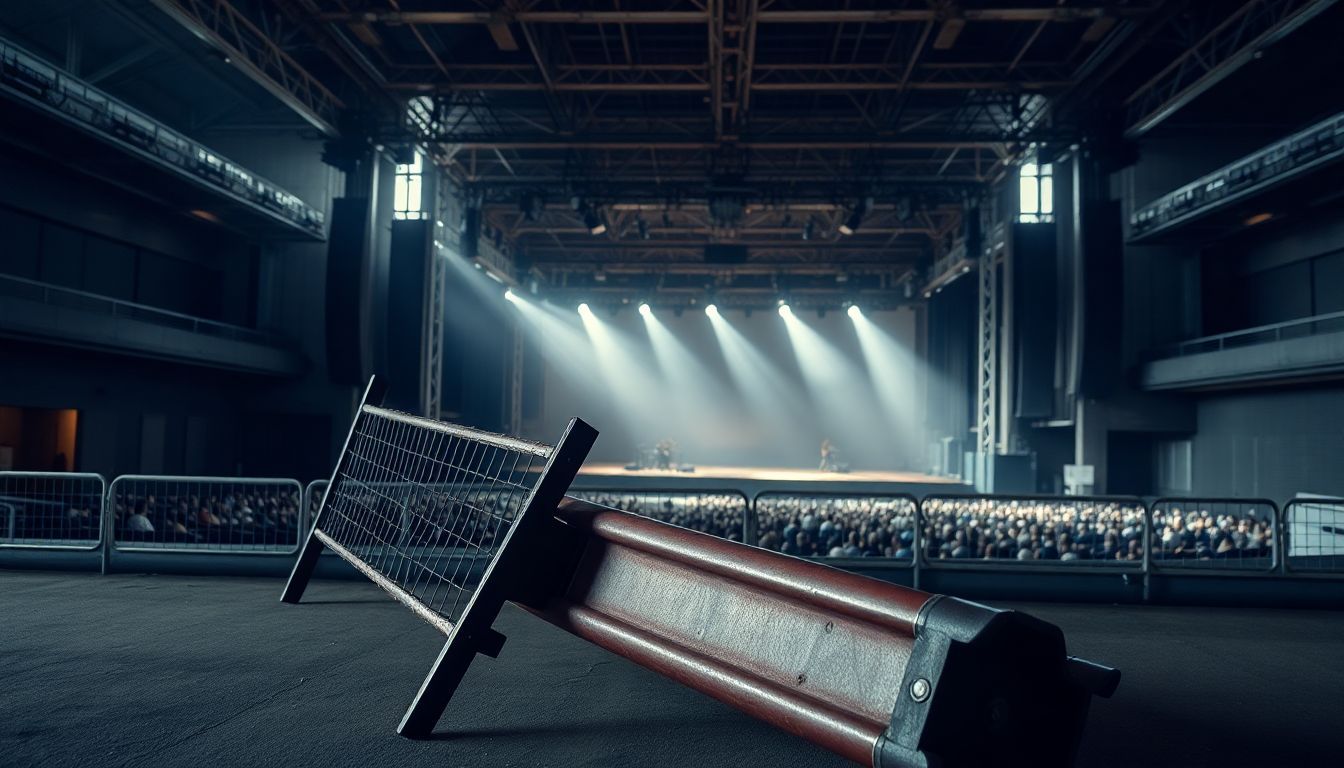Concert injuries can leave victims with high medical bills and lasting trauma. Many people don’t know they can hold event organizers responsible for accidents. This article explains how to pursue a lawsuit after a concert injury.
Learn your rights and get the compensation you deserve.
Key Takeaways
- Concert organizers can be held liable for injuries due to negligence, including poor crowd control, unsafe venues, or lack of security.
- Common concert injuries include contusions (33.8%), leg injuries (34.6%), and dental trauma (4.6%).
- Multiple parties may be responsible in concert accident cases, including venue owners, event organizers, equipment manufacturers, and security staff.
- Waivers on tickets may limit some liability but don’t protect against gross negligence or intentional harm.
- The Astroworld Festival incident in 2021 led to thousands of lawsuits and $280 million in litigation costs for Live Nation by 2024.
Legal Basis for Concert Accident Lawsuits

Concert accident lawsuits rest on the legal concept of negligence. Organizers must prove they took reasonable care to prevent harm. This duty includes providing a safe venue, proper security, and crowd control measures.
If they fail to meet this standard, they may be held liable for injuries. Gross negligence, which involves reckless disregard for safety, can lead to harsher penalties. I once attended a concert where poor crowd management led to a stampede.
The organizers faced legal action for not having enough security staff.
Premises liability also plays a key role in these cases. Property owners must keep their venues safe for concert-goers. This includes fixing hazards and warning about risks. Waivers on tickets may limit some liability, but courts often view them skeptically.
They don’t protect against gross negligence or intentional harm. In my experience as a lawyer, I’ve seen cases where faulty stage equipment caused injuries. The venue owner shared blame with the event organizer for not maintaining safe conditions.
Common Types of Concert Injuries
Concert injuries can range from minor to severe, affecting various body parts. Understanding these common injuries helps concertgoers stay safe and aware during live music events.
- Contusions: These bruises make up 33.8% of concert injuries. They often result from crowd pushing, falls, or contact with hard surfaces.
- Leg Injuries: The most frequent injury site, legs account for 34.6% of concert-related harm. This includes sprains, strains, and fractures from falls or crowd pressure.
- Dental Trauma: Surprisingly, 4.6% of concert injuries involve teeth. Tooth fractures and avulsions can occur from accidental impacts or falls.
- Head and Neck Injuries: These can be serious, ranging from concussions to whiplash. They often happen during moshing or crowd surfing activities.
- Cuts and Lacerations: Sharp objects, broken glass, or stage equipment can cause these injuries. Proper crowd control helps reduce their occurrence.
- Dehydration and Heat Exhaustion: Crowded venues and high-energy dancing can lead to these conditions. Staying hydrated is crucial at concerts.
- Hearing Damage: Prolonged exposure to loud music can cause temporary or permanent hearing loss. Using earplugs helps protect against this risk.
- Crush Injuries: In severe cases, crowd surges can lead to dangerous crushing. Proper venue management is key to preventing these incidents.
- Musculoskeletal Strains: Energetic dancing and long periods of standing can result in muscle strains or joint pain.
- Eye Injuries: Flying objects, elbows, or stage effects can potentially harm eyes. Staying alert in crowds helps avoid these risks.
Responsibilities of Event Organizers
Event organizers must ensure the safety of all attendees at concerts and festivals. This duty of care includes identifying and addressing potential hazards like overcrowding and slip-and-fall risks.
Organizers need to create and follow strict safety plans that cover crowd control, emergency response, and venue management. They must also comply with local health and safety regulations to protect concert-goers from harm.
Safety isn’t expensive, it’s priceless, a seasoned event planner once told me.
Proper planning involves risk assessment, emergency preparedness, and incident response strategies. Event coordinators should train staff on safety protocols and have clear communication systems in place.
They must also secure proper insurance coverage and work closely with local authorities to handle any issues that may arise. The next section will explore the various parties that could be held liable in case of a concert accident.
Potentially Liable Parties
Moving from the responsibilities of event organizers, we now turn to the parties who may be held liable for concert accidents. Concert injuries often involve multiple responsible parties.
Venue owners, event organizers, and equipment manufacturers can all face legal action if their negligence leads to harm. Security staff may also be at fault if they fail to manage crowds or respond to fights.
Our firm has seen cases where vendors and even performers shared blame for accidents.
Identifying all potentially liable parties is crucial in concert injury claims. This approach ensures victims receive full compensation for their injuries. We once represented a client injured by faulty stage equipment.
Our investigation revealed both the venue and the equipment maker were at fault. By naming both parties in the lawsuit, we secured a larger settlement for our client. This strategy often leads to better outcomes for those hurt at concerts.
Defenses in Concert Injury Cases
Concert organizers often use legal defenses to protect themselves from liability in injury cases. These defenses aim to show that the organizer took reasonable steps to ensure safety or that the injury was not their fault.
- Reasonable Safety Measures: Organizers may argue they implemented proper safety protocols, such as hiring security, setting up barriers, and providing medical staff.
- Attendee Negligence: Defendants might claim that the injured person’s own actions, like moshing or crowd surfing, caused their injury.
- Assumption of Risk: This defense suggests that concertgoers knowingly accept certain risks when attending a live event.
- Waiver Clauses: Many tickets include fine print that limits the organizer’s liability, though these are not always enforceable.
- Act of God: In cases of weather-related incidents, organizers may claim the event was beyond their control.
- Third-Party Fault: Organizers might argue that another entity, like the venue owner or a contractor, was responsible for the injury.
- Lack of Foreseeability: This defense claims that the specific incident could not have been predicted or prevented.
- Compliance with Regulations: Organizers may show they followed all local laws and industry standards for event safety.
- Contributory Negligence: This argues that the injured person’s actions partly caused their own injury, potentially reducing damages.
- Crowd Dynamics Complexity: Organizers might claim that the unpredictable nature of large crowds makes some incidents unavoidable.
Supplementary insights on Concert Accident Lawsuits
Concert accident lawsuits involve complex legal issues that demand careful analysis. Learn more about premises liability, waivers, and special event insurance to protect your rights at public events.
Premises Liability and Concerts
Premises liability plays a key role in concert accident lawsuits. Property owners and event organizers must ensure safe conditions for attendees. This includes proper lighting, crowd control, and security measures.
Unsafe conditions like wet floors or broken railings can lead to injuries. In my experience as a concert-goer, I’ve seen how crucial these safety measures are.
Venue owners and organizers can be held liable for accidents caused by negligence. For example, if they fail to address known hazards or provide adequate security. Slip and fall accidents are common at concerts due to spilled drinks or uneven surfaces.
Injured attendees may seek compensation for medical bills and lost wages. The next section will explore the role of waivers in injury claims at concerts.
Role of Waivers in Injury Claims
Waivers play a key role in concert injury claims. Many ticket providers include these legal documents to limit their liability. These waivers often contain “assumption of risk” clauses.
These clauses state that attendees know and accept the risks of attending a concert. While waivers can make it harder to sue, they don’t always stop all legal claims.
Concertgoers should know that waivers aren’t absolute defenses against lawsuits. Courts may still allow claims if the venue was very careless. The legal impact of waivers varies by state and situation.
Injured attendees should talk to a lawyer about their rights. Understanding waivers helps people make smart choices about concert safety and their legal options.
Importance of Special Event Insurance
Special event insurance guards against financial losses at concerts and festivals. It covers cancellations, delays, and guest injuries. Our team saw this firsthand when a sudden storm forced us to postpone a major outdoor concert.
The insurance saved us from huge losses. It paid for the rescheduling costs and refunds to ticket holders. Event organizers need this protection for peace of mind. Different types of coverage exist, like event cancellation and liability insurance.
These policies shield against various risks, from property damage to liquor-related incidents. Smart planners always include insurance in their event budgets.
Understanding Product Liability: Your Rights as a Consumer
Product liability laws protect consumers from harmful or faulty goods. These laws hold makers, sellers, and others in the supply chain responsible for injuries caused by their products.
Consumers have the right to sue if a defective item harms them. Courts may award money for medical bills, lost wages, and pain. Product flaws can stem from poor design, manufacturing errors, or unclear warnings.
Strict liability rules often apply, meaning victims don’t need to prove negligence.
Consumers should know their rights when dealing with unsafe products. They can file complaints with safety agencies or join class-action lawsuits. It’s vital to keep records of purchases and any harm suffered.
Quick action is key, as time limits may apply to legal claims. Product recalls don’t always shield companies from lawsuits. Victims may still seek damages if they were hurt before a recall.
The next section will explore how to pursue a concert injury claim.
How to Pursue a Concert Injury Claim
Understanding product liability sets the stage for pursuing a concert injury claim. Taking action after a concert injury involves several key steps to protect your rights and seek compensation.
- Seek immediate medical attention: Document all injuries and treatments received.
- Gather evidence: Collect photos, videos, witness statements, and any relevant documents.
- Report the incident: Notify event organizers and venue management in writing.
- Identify liable parties: Consider venue owners, event organizers, and equipment manufacturers.
- Consult a personal injury lawyer: Many offer free initial consultations to assess your case.
- File a claim: Your lawyer will help you file against the responsible parties.
- Investigate thoroughly: Work with your lawyer to gather all necessary evidence.
- Negotiate with insurance companies: Your lawyer will handle communications on your behalf.
- Consider multiple claims: You may need to file against several parties for full compensation.
- Meet deadlines: Be aware of statutes of limitations for filing your claim.
- Prepare for possible defenses: Understand common arguments used by defendants.
- Document all expenses: Keep records of medical bills, lost wages, and other costs.
- Stay off social media: Avoid posting about your injury or the incident online.
- Be patient: The claims process can take time, but persistence often pays off.
- Know your rights: Familiarize yourself with local laws regarding concert injuries.
Real-World Examples of Concert Accident Lawsuits
Concert accidents have resulted in major legal actions against event organizers. The Astroworld incident is a recent example of large-scale concert litigation.
- Astroworld Festival Incident (2021): Travis Scott’s concert led to 10 deaths and thousands of injuries due to a crowd surge. Thousands of lawsuits were filed and consolidated into Multidistrict Litigation. Live Nation reported $280 million spent on related litigation in 2024. The first trials are scheduled for May 6, 2024.
- The Station Nightclub Fire (2003): A fire during a Great White concert resulted in 100 deaths and 230 injuries. Lawsuits targeted the band, venue owners, and foam manufacturers, leading to millions in settlements.
- Indiana State Fair Stage Collapse (2011): Strong winds caused a stage collapse, resulting in seven deaths and 58 injuries. Victims sued the state and companies involved, leading to $50 million in settlements.
- Radiohead Stage Collapse (2012): A stage collapse in Toronto resulted in the death of a drum technician. The band and families sued Live Nation and other companies, leading to an extended legal battle.
- Ariana Grande Manchester Arena Bombing (2017): A terrorist attack at Grande’s concert resulted in 22 deaths and hundreds of injuries. Victims’ families sued the security company for negligence.
These cases illustrate the legal issues surrounding concert accidents and the significance of safety measures. The following section will address how to pursue a concert injury claim.
Conclusion
Concert accident lawsuits play a vital role in keeping event organizers accountable. They push for better safety measures and protect attendees’ rights. Victims of concert injuries have legal options to seek justice and compensation.
Event planners must prioritize safety to avoid costly lawsuits and protect their reputation. Understanding these legal aspects helps create safer, more enjoyable events for everyone involved.
FAQs
1. What legal options do concert-goers have after an accident?
Injured attendees can file lawsuits against event organizers, venues, or security firms. These claims often seek compensation for medical bills, lost wages, and pain and suffering. Lawyers specializing in personal injury cases can guide victims through the legal process.
2. How do courts determine liability in concert accident cases?
Courts examine factors like crowd control measures, safety protocols, and emergency response plans. They assess whether organizers took reasonable steps to prevent harm. Expert witnesses may testify about industry standards. The venue’s history of incidents also plays a role in determining fault.
3. What damages can plaintiffs recover in concert accident lawsuits?
Successful plaintiffs may receive compensation for medical expenses, lost income, and emotional distress. In cases of gross negligence, courts might award punitive damages. The amount depends on injury severity and the organizer’s level of responsibility. Some cases result in multi-million dollar settlements.
4. How long do victims have to file a concert accident lawsuit?
The time limit, called the statute of limitations, varies by state. Most range from one to three years after the incident. Prompt action is crucial to preserve evidence and witness testimony. Consulting a lawyer quickly helps ensure victims don’t miss important deadlines.
References
- https://www.nolo.com/news/astroworld-concert-injury-lawsuits.html
- https://pubmed.ncbi.nlm.nih.gov/36116120/
- https://versustexas.com/blog/texas-concert-injuries/ (2024-06-16)
- https://www.naperville-personal-injury-lawyer.com/the-responsibility-of-event-organizers-for-attendee-safety-ensuring-a-secure-and-prepared-environment/ (2024-09-12)
- https://gravesmclain.com/personal-injury/public-event-festival-injuries-legal-guide/
- https://ylginjury.com/injured-at-concert-venue-who-is-liable/
- https://www.lawhancock.com/who-is-liable-for-concert-venue-injuries/ (2023-09-28)
- https://www.dontgethittwice.com/blog/2024/november/how-to-navigate-concert-injuries-understanding-l/ (2024-11-13)
- https://walterclark.com/blog/what-to-do-if-you-have-been-injured-at-a-concert-in-california/ (2024-03-27)
- https://esportsinsurance.com/special-event-insurance-coverage/ (2024-02-28)
- https://www.drakelawgroup.com/post/product-liability-lawsuits-holding-manufacturers-accountable-for-harmful-products
- https://www.straccilaw.com/blog/concert-injury-what-should-you-do-guide

